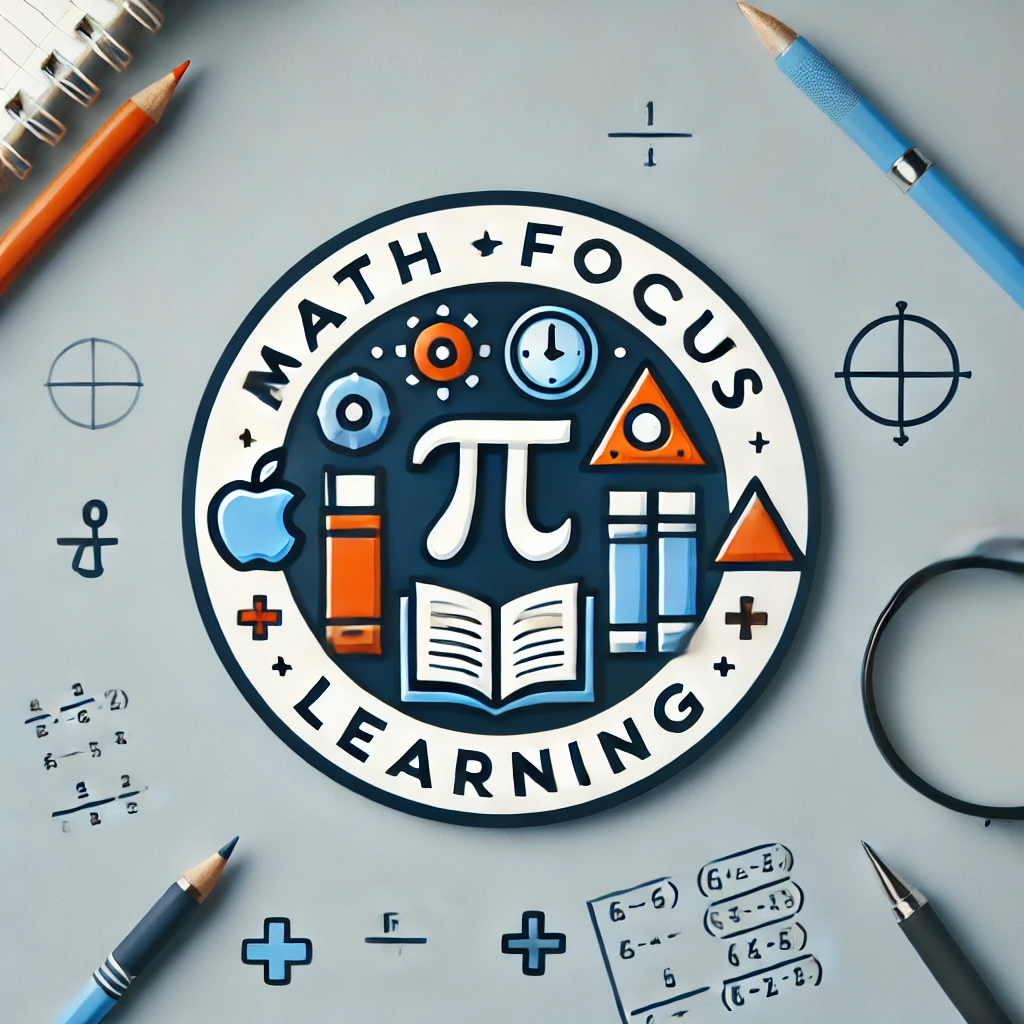From Equations to Algorithms: Math’s Role in AI Mastery
In today’s rapidly evolving technological landscape, Artificial Intelligence (AI) is revolutionizing numerous industries. From healthcare to finance, AI is transforming how we live and work. However, there’s a fundamental element that underpins all AI innovations: mathematics. For high school students and their parents, understanding the importance of mathematics in this AI-driven world is crucial. Math is not just a subject; it’s a vital skill that will equip the next generation for future success. Here’s why mastering math is essential for preparing for an AI-driven future.

The Mathematical Foundation of AI
Mathematics is the backbone of AI. The algorithms that drive AI systems are deeply rooted in mathematical principles. Understanding these principles is crucial for developing, refining, and implementing AI technologies. Let’s explore some key areas where math plays a pivotal role in AI:
Linear Algebra
Linear algebra is fundamental in AI, particularly in the development of neural networks. Matrices and vectors, which are core components of linear algebra, are used to represent and manipulate data. This representation is essential for tasks such as image recognition and natural language processing, where large datasets are common.
Calculus
Calculus, especially differential calculus, is vital for optimization. AI models, particularly in machine learning, rely on optimization algorithms to minimize error functions. Calculus enables these models to learn from data by adjusting parameters to improve accuracy and performance.
Probability and Statistics
Probability and statistics are critical for making predictions and decisions based on data. These mathematical fields help AI systems handle uncertainty and variability, allowing them to make informed decisions. From Bayesian networks to hypothesis testing, statistical methods are integral to AI.
Real-World Applications of Math in AI
Building AI Models
Developing AI models involves creating algorithms that can learn from data. This process requires a deep understanding of mathematical concepts to design models that are both accurate and efficient. Whether it’s a simple linear regression model or a complex deep learning network, math is the key to building robust AI systems.
Data Analysis
Data analysis is a crucial part of AI. Mathematicians and data scientists use statistical methods to analyze large datasets, identify patterns, and extract meaningful insights. This analysis helps in training AI models and improving their performance. Techniques such as clustering, regression, and classification are all grounded in mathematical theories.
Solving Complex Problems
AI is being used to solve complex real-world problems across various industries. For example, in healthcare, AI algorithms analyze medical data to diagnose diseases and predict patient outcomes. In finance, AI models assess risks and detect fraudulent activities. All these applications rely on mathematical principles to function effectively.
Why Math Mastery is Essential for Students
Developing Critical Thinking Skills
Mathematics fosters critical thinking and problem-solving skills. These skills are vital in AI, where developing algorithms and models requires logical reasoning and the ability to tackle complex problems systematically. In math, students learn to break down complex problems into manageable steps, recognize patterns, and devise logical solutions. This analytical approach is directly applicable to AI, where creating effective algorithms necessitates a deep understanding of the underlying problem, a strategic approach to data, and the capacity to foresee potential outcomes. Moreover, the rigor and discipline of mathematical thinking help students develop a mindset that is crucial for tackling the unpredictable and often ambiguous challenges presented by AI.
Enhancing Technical Competence
A solid grasp of mathematical concepts enhances technical competence in AI. Students who excel in math are better equipped to understand and implement AI algorithms, making them more competitive in the job market. Advanced AI techniques such as machine learning, neural networks, and data mining are all grounded in mathematical theories. For instance, understanding the gradients in calculus is essential for optimizing machine learning models. Mastery of linear algebra is crucial for handling high-dimensional data and constructing complex neural networks. Additionally, statistical methods are indispensable for analyzing data, estimating models, and making predictions. As technology advances, those with a strong foundation in math will be better positioned to grasp new tools and methodologies, ensuring they remain at the forefront of AI innovation.
Driving Innovation
Mathematics is at the heart of innovation in AI. Understanding mathematical principles allows students to contribute to cutting-edge research and develop innovative solutions to real-world problems. This knowledge is crucial for pushing the boundaries of what AI can achieve. For example, breakthroughs in natural language processing, autonomous systems, and predictive analytics all stem from mathematical innovations. By mastering math, students can engage in research that leads to new AI applications, from creating smarter healthcare diagnostics to developing more efficient logistics solutions. Furthermore, a strong mathematical foundation encourages a creative approach to problem-solving, enabling students to think outside the box and devise novel solutions that can transform industries and improve lives. In essence, math equips students with the tools to drive the next wave of AI advancements, fostering a culture of innovation that is essential for future technological progress.
Pioneers of AI with Strong Math Backgrounds
The history of AI is filled with pioneers who were not only visionaries in technology but also had strong foundations in mathematics. Here are a few notable examples:
Larry Page and Sergey Brin
Larry Page and Sergey Brin, the co-founders of Google, have strong backgrounds in computer science and mathematics. Both Page and Brin were Ph.D. students at Stanford University, where they developed the PageRank algorithm, which is the foundation of Google’s search engine. PageRank is based on complex mathematical principles, including graph theory and linear algebra. Their deep understanding of these mathematical concepts allowed them to create one of the most influential technologies of the modern era. The success of Google, and its advancements in AI and machine learning, is a testament to the importance of a strong mathematical foundation.
Elon Musk
Elon Musk, the CEO of SpaceX and Tesla, has a strong foundation in physics, which inherently involves significant mathematical knowledge. His educational background includes a dual degree in physics and economics from the University of Pennsylvania. Physics requires a deep understanding of calculus, linear algebra, and statistics, which are all critical for the complex problem-solving needed in AI. Musk’s ventures, such as Tesla’s self-driving cars and SpaceX’s innovations in space technology, heavily rely on AI and advanced mathematical models.
Andrew Ng
Andrew Ng, co-founder of Coursera and former head of Baidu AI Group/Google Brain, is a prominent figure in AI and machine learning. With a background in computer science and electrical engineering, Ng’s work emphasizes the importance of math in AI. He is known for his contributions to deep learning and online education, particularly through his popular machine learning courses.
Fei-Fei Li
Fei-Fei Li, a professor at Stanford University and co-director of the Stanford Human-Centered AI Institute, has made significant contributions to AI, particularly in computer vision. Her work on ImageNet, a large visual database designed for use in visual object recognition research, has been foundational. Li’s mathematical and scientific expertise underpins her pioneering research in AI.
Yann LeCun
Yann LeCun, Chief AI Scientist at Facebook and a professor at NYU, is one of the most influential figures in the field of deep learning. His work on convolutional neural networks (CNNs), which are widely used in image and video recognition, is built on robust mathematical concepts. LeCun’s contributions to AI are deeply rooted in his strong background in mathematics and computer science.
Preparing for the AI-Driven Future
As AI continues to evolve, the demand for professionals with strong mathematical backgrounds will only increase. The integration of quantum computing with AI and advanced mathematical models holds the potential to solve problems that are currently beyond our reach. Quantum algorithms, which leverage principles of quantum mechanics, could revolutionize fields like cryptography, material science, and drug discovery by providing solutions to problems that classical computers struggle with.
Moreover, AI will become an even more integral part of educational systems, making math learning more intuitive and effective. As AI tools become more sophisticated, they will be able to provide even more personalized learning experiences, helping students at all levels to achieve their full potential. For educators, AI can offer insights into student performance and identify areas where teaching methods can be improved, ultimately leading to a more effective and inclusive educational environment.
Conclusion
AI and math are inseparably linked, creating a dynamic partnership that drives technological progress and innovation. For high school students and their parents, mastering math is not just beneficial—it’s essential. By understanding and leveraging the synergy between AI and mathematics, students can unlock new possibilities and ensure a future where technology and human potential flourish together.
As we embrace this powerful partnership, we can look forward to a future where AI and math continue to drive progress and innovation. Whether it’s through advancing scientific research, enhancing education, or solving global challenges, the mastery of math is the key to future success in the AI-driven world. For those seeking to develop strong mathematical foundations and unlock the potential of AI, visit MathFocusLearning.com to access personalized AI math tutoring designed to help students master math their way.
References
https://towardsdatascience.com/the-role-of-mathematics-in-artificial-intelligence-237a4f0100c3h ttps://www.forbes.com/sites/forbestechcouncil/2020/12/21/why-mathematics-is-important-for-ai/
https://builtin.com/data-science/math-behind-aihttps://www.edx.org/course/mathematics-for-ai
https://www.analyticsvidhya.com/blog/2020/08/why-mathematics-is-necessary-for-ai/
https://www.edx.org/course/mathematics-for-ai
About the Author: Ajitha Molakalapalli is an experienced educator and technology leader, dedicated to leveraging AI to enhance learning experiences. With nearly three decades of teaching and a strong background in product management, Ajitha is passionate about making math accessible and engaging for all students.
